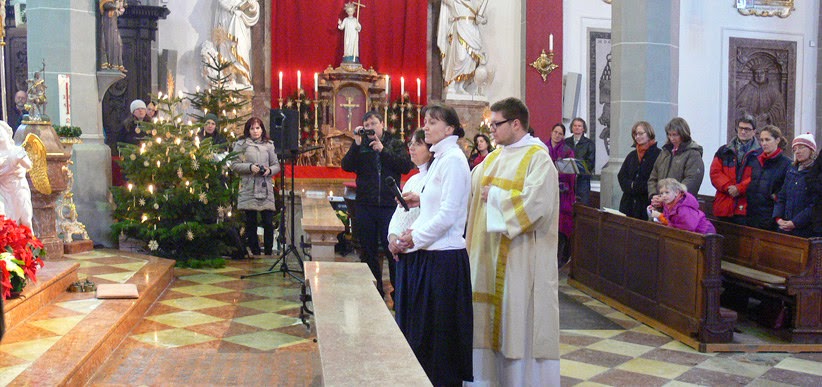The second great international retreat of the priests of the Emmanuel Community was held from from the 9th to the 14th of February at the Foyer of Chairty of Chateauneuf-de-Galaure in France.
180 of the 250 priests of the community were present. Bishops Yves le Saux and Dominique Rey were the preachers of the this retreat. Beginning with the foundational graces of the Emmanuel Commuity and particularly from the humble figure of Pierre Goursat, they preached this retreat on the theme of pastoral charity and the priest of the Emmanuel Community today.
The week was an opportunity for priests coming from every continent to deepen the meaning of the fatherhood of a priest, and also what it means to be a brother as well as a son.
It was seen that to be a father is to give life in order to give one's life, to be close to others, to be a patient and benevolent witness, and also to have the courage of being faithful to the truth while at the same time giving the mercy of God to humanity. To be a brother and a son, this is to accept to depend, in a simple way, on others, whatever their state of life in the Church.
The Moderator of the Community and the Co-ordinator for priests concluded this beautiful retreat by encouraging the priests of Emmanuel to live community life in a free gift of self, in a communion of the states of life, there wherever they are. They reminded them of the importance of welcoming the human fragilities and poverties of every person in order to exercise a real paternity which strengthens, encourages and raises up.
Some Fioretti:
"What is urgent is not so much to defend Catholic identity but to be missionary."
"The difficulty of fraternal life...is the brother!"
"To make a good decision requires a good night and a good mass."
"That which you want to light in the others must first be burning in you."
"Paternity is to move from giving life to giving one's life" (said by the father of a family)
"When we don't know where we're going we shouldn't be surprised if we arrive somewhere else!"
"Our little decisions work if they become supplications."
"When I hear my parish priest speak of the Gospel, this makes me afraid; when I see him live it, I am reassured."





